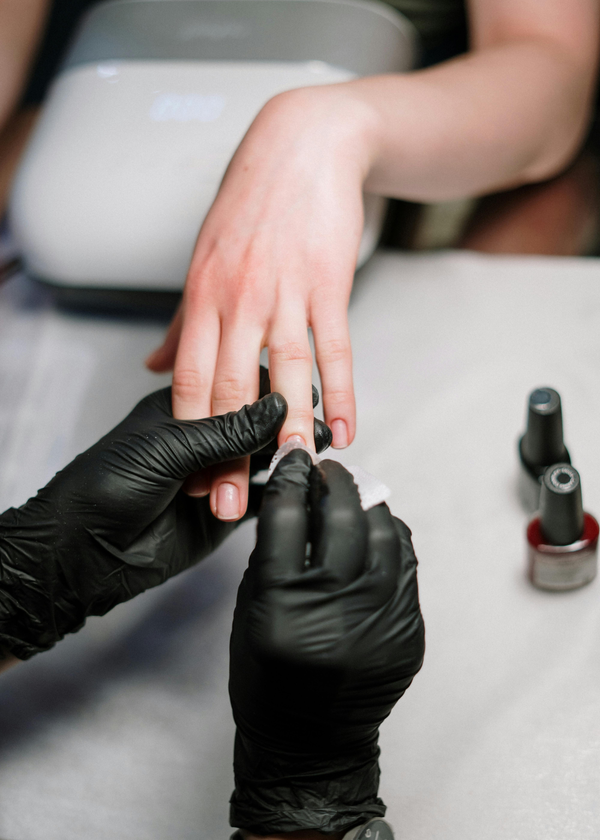Tartar, a common dental issue in dogs, can lead to serious health problems if left unchecked. As a responsible pet owner, you might wonder, "How do you remove tartar from a dog's teeth without a dentist?"
This comprehensive guide will provide you with practical steps to ensure your furry friend's smile stays bright and healthy.
The Perils of Ignoring Tartar
When plaque and tartar accumulate on a dog's teeth, it can lead to gum diseases and tooth loss. Tartar forms when plaque hardens on the teeth near the gum line, creating a breeding ground for bacteria. This not only affects your dog's oral health but can also contribute to bad breath and more severe health issues.
Establish a Daily Brushing Routine
Daily brushing is the cornerstone of good dental health for dogs. Brushing your dog's teeth with special dog toothpaste can significantly reduce plaque and prevent tartar buildup. It's essential to use enzymatic toothpaste designed for dogs, as human toothpaste can be harmful to your pet's health.
Choosing the Right Tools
A finger brush or a toothbrush specifically designed for dogs can make teeth brushing more effective. These tools are tailored to fit comfortably in a dog's mouth and remove plaque efficiently. For small dogs or those with sensitive gums, a finger brush can be a gentler option.
The Power of Dental Chews and Treats
Dental chews and treats are not just tasty for your dog; they're also instrumental in fighting tartar. Perfect dental chews are designed to help dogs chew thoroughly, which can naturally scrape away plaque and tartar. Always choose chews that are appropriate for your dog's size and chewing habits.
The Role of Diet in Dental Health
What your dog eats plays a crucial role in their dental care. Foods that promote dental health can help prevent tartar buildup. Avoid sugary foods and opt for kibble or treats that are formulated to keep your pet's teeth clean.
Raw Bones: Nature's Toothbrush
Raw bones can act as natural toothbrushes for dogs. Chewing on raw bones helps to remove plaque and can soften tartar, making it easier to brush away. However, it's important to supervise your dog while they chew to prevent any choking hazards.
Hydration Helps
Adding a dental additive to your dog's water bowl can help maintain dental hygiene. These additives often contain ingredients that fight plaque and can improve your dog's breath. Ensure that your dog drinks water regularly to benefit from these dental solutions.
Innovative Tartar Removal Techniques
Exploring Water Additives for Tartar Control
Water additives are an innovative solution for pet owners looking to maintain their dog's oral health with minimal fuss. By simply adding a specialized formula to your dog's water bowl, you can help reduce tartar build-up and promote a healthier mouth. These additives often contain ingredients that can neutralize harmful bacteria in your dog's saliva, leading to less plaque and tartar formation. It's a passive approach to dental care that complements regular teeth brushing, making it easier to keep your pet's teeth clean without a dentist.
The Magic of Dental Gels and Foams
Dental gels and foams are another fantastic option for those pondering how to remove tartar from a dog's teeth without a dentist. These products are designed to be applied directly to your dog's gums and teeth. They work by softening dental tartar, which makes it easier to be brushed away or removed through the natural chewing process. Some gels and foams are formulated with enzymes that break down plaque and tartar, while also freshening your dog's breath. They're a great addition to a comprehensive dental care routine that includes regular brushing and the use of dental chews.
The Synergy of Diet and Dental Hygiene
When it comes to maintaining your dog's oral health, the synergy between diet and dental hygiene plays a pivotal role. Dog chews and dental treats are not just rewards; they are instrumental in mechanically scraping off tartar build-up from your dog's teeth. Incorporating these into your pet's daily routine can significantly reduce the need for frequent professional cleanings. Similarly, being selective about your dog's food can make a world of difference. Foods designed to promote healthy breath and reduce dental plaque are key to preventing tartar from taking hold in your dog's mouth.
Moreover, the act of chewing stimulates the production of dog's saliva, which has natural antibacterial properties that help in removing plaque and maintaining a clean oral environment. It's essential to choose the right size and type of chew based on your dog's size and chewing habits. Dental sticks and chew toys are not only fun for your dog but also serve as an abrasive surface to clean their teeth. Regularly incorporating these items into your dog's diet can be a game-changer for their oral health.
The Art of Choosing Dental-Friendly Dog Foods
When it comes to maintaining your dog's oral health, the type of food they eat can play a pivotal role. Dog's food that requires chewing can naturally help reduce tartar build-up. Dry kibble, for instance, is often recommended over wet food because the abrasive texture helps clean the dog's teeth as they eat. However, not all kibbles are created equal. Look for brands that have a seal of approval from veterinary dental associations, as these are specifically formulated to reduce plaque and tartar.
Moreover, some dog foods are enhanced with special ingredients that can improve your dog's oral health. These may include additives that help neutralize dog's saliva to prevent tartar formation. When selecting your pet's food, consider the size and breed of your dog as well. Larger breeds might benefit from bigger kibble pieces that require more chewing, while smaller breeds may need smaller, easier-to-manage sizes. Always ensure that the food you choose is complete and balanced to support overall health, which in turn, supports healthy dog's gums and teeth.
Integrating Dental Playtime with the Right Dog Toys
Incorporating play into your dog's dental care routine can be both enjoyable and beneficial for their teeth. Dog toys designed for dental health can make a significant difference. Toys with nubs and ridges can massage the dog's gums and help to remove soft tartar before it hardens. Rubber and nylon toys are particularly good for this purpose, as they are durable and provide just enough resistance to be effective without damaging the dog's teeth.
When choosing toys, consider your dog's size and chewing habits. A toy that's too small can be a choking hazard, while one that's too hard might damage teeth. Also, toys that can be filled with treats encourage dogs to chew longer, which increases the saliva in the dog's mouth, helping to cleanse the teeth and reduce tartar. Always supervise your pet during playtime to ensure they're using the toys safely, and inspect the toys regularly for any signs of wear and tear.
Innovations in Canine Dental Care Products
In the quest for optimal canine dental health, innovative products have emerged that make it easier for owners to maintain their pet's teeth without always resorting to a dentist. Dental sprays and dental wipes are convenient options for dog owners on the go. A quick spritz of a dental spray in your dog's mouth can freshen dog's breath and help control plaque. Similarly, dental wipes can be used to quickly remove debris from the teeth and gums, especially if your dog is not fond of having their teeth brushed.
Another innovative solution is the use of additives in your dog's water bowl. These products are designed to help reduce tartar build-up and improve dog's oral health with every sip they take. They are a hassle-free way to supplement your efforts in brushing your dog's teeth regularly.
Remember, while these products are helpful, they should complement, not replace, a routine that includes regular dental cleaning. Always consult with your vet to ensure that the products you choose are safe and suitable for your dog's gums and overall health.
The Role of Nutrition in Tartar Prevention
Choosing the Right Diet for Dental Health
The food your pet eats plays a crucial role in the prevention of tartar build-up. A well-balanced diet that includes crunchy kibble can act as a natural abrasive to help keep your dog's teeth scrubbed and reduce the risk of gum disease and tooth decay.
Some dog foods are specially formulated to promote dental health, containing specific nutrients that strengthen teeth and gums. It's important to consider your dog's size and dietary needs when selecting their food, as the right diet can be a powerful ally in the fight against dental tartar.
Supplements for Strengthening Teeth and Gums
In addition to a proper diet, supplements can be a valuable tool in maintaining your dog's oral health. Ingredients like vitamin C and certain probiotics are known to support gum health and can be added to your dog's food or given as a separate treat. These supplements can help bolster your dog's natural defenses against tartar and plaque, ensuring their teeth and gums remain strong. Always consult with a professional in veterinary medicine before adding any new supplements to your dog's regimen to ensure they're appropriate and beneficial for your pet's specific needs.
Dental Toys: Fun and Functional
Dental toys are not only fun for your dog but also serve a practical purpose. As dogs chew on these toys, the action helps to scrub their teeth and remove tartar. Choose toys that are durable and designed to clean teeth for the best results.
Professional Cleaning: A Necessary Step
While there are many ways to maintain your dog's oral health at home, a professional cleaning by a veterinarian is sometimes necessary. This procedure can remove tartar buildup that's difficult to tackle with home care alone.
Dental Sprays and Wipes
Dental sprays and wipes can be a convenient addition to your dog's dental routine. These products are designed to be quick and easy to use, helping to remove plaque and freshen your dog's breath on the go.
The Importance of Regular Check-Ups
Regular dental check-ups with your vet can help catch dental diseases early. These visits allow for a thorough examination of your dog's mouth and can provide guidance on how to improve your home dental care routine.
Understanding the Signs of Dental Issues
Knowing the signs of dental issues can help you act quickly to prevent further problems. Symptoms like swollen gums, difficulty eating, or excessive drooling can indicate that your dog is experiencing dental discomfort.
Home Remedies to Soften Tartar
Some home remedies can help soften tartar, making it easier to remove. For example, a mixture of coconut oil and baking soda can be used as a homemade toothpaste that helps fight plaque and freshen your dog's breath.
The Benefits of Enzymatic Solutions
Enzymatic solutions in dental products can help break down plaque and tartar. These products work with your dog's saliva to continuously combat tartar formation throughout the day.
Educating Yourself on Canine Dental Health
Understanding the basics of canine dental health is crucial for any dog owner. By educating yourself, you can make informed decisions about your dog's dental care and choose the best products and practices to keep their teeth clean.
FAQs
Q: How often should I brush my dog's teeth to prevent tartar?
A: Ideally, you should brush your dog's teeth daily to prevent plaque and tartar buildup. Establishing a routine is crucial for maintaining your dog's oral health.
Q: Can I use human toothpaste to brush my dog's teeth?
A: No, you should never use human toothpaste to brush your dog's teeth. Human toothpaste contains ingredients that can be toxic to dogs. Always use toothpaste specifically formulated for pets.
Q: Are dental chews enough to keep my dog's teeth clean?
A: While dental chews can significantly contribute to your dog's oral hygiene by helping to remove plaque and tartar, they should not be the sole method of dental care. Daily brushing and regular veterinary check-ups are also necessary to ensure comprehensive dental health.
Summary
Removing tartar from a dog's teeth without a dentist involves a combination of daily brushing, the right diet, and the use of dental products like chews, toys, sprays, and wipes. Regular vet check-ups and being aware of dental health signs are also key to preventing serious dental issues.
By following these steps, you can promote dental health and prevent tartar buildup, ensuring your dog's mouth stays healthy and their breath stays fresh.








